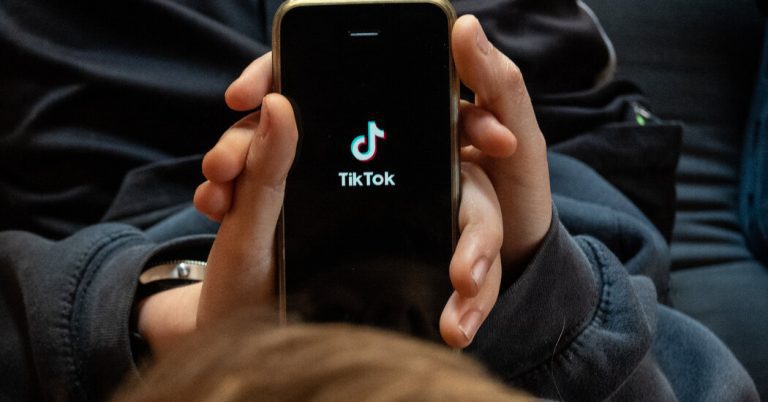Florida’s legislature has passed a sweeping social media bill that would make the state the first to effectively ban youth under the age of 16 from maintaining accounts on platforms like TikTok and Instagram.
The measure — which Gov. Ron DeSantis said he would “fight” over the weekend and has yet to sign — could potentially upend the lives of millions of young people in Florida.
It will also face constitutional challenges. Federal courts have blocked less restrictive youth social media laws enacted last year by Arkansas and Ohio. Judges in those cases said the new statute likely violated social media companies’ free speech rights to distribute information as well as young people’s rights to access it.
The new rules in Florida, passed Thursday, would require social networks to both prevent people under 16 from signing up for accounts and terminate accounts that a platform knew or believed belonged to underage users. It will apply to apps and websites with certain features, such as Facebook, Instagram, Snapchat, TikTok and YouTube.
Last year, Utah, Arkansas, Texas and Ohio enacted laws requiring social media platforms to obtain permission from a parent before giving an account to a minor under 18 or under 16.
Florida’s effort would go much further, amounting to a blanket ban for young people on some of the most popular social media apps. It would also ban platforms from showing harmful material to minors, including “obviously offensive” sexual behaviour.
The manufacture, said Mr. DeSantis that he believed social media was “purely negative” for young people but that, with parental supervision, it could have beneficial effects.
“You have to strike that right balance when you’re looking at these things between policy that helps parents get to where they want to go versus policy that might overpower parents,” he said.
Civil liberties groups and tech industry trade groups have opposed new government restrictions on social media, saying the measures could severely limit young people’s access to important information and communities — and change the way they communicate with friends and their family.
Florida’s measure is the most extreme example yet of a growing national trend. Many parents, pediatricians and politicians are concerned about the potential mental health and safety risks for young people from prolonged use of social media. This has prompted state and federal lawmakers and regulators to increase their scrutiny and efforts to regulate social media companies.
In a politically polarized climate, the crackdown on social media stands out as bipartisan.
Attorneys general from more than 40 states recently sued Meta, which owns Instagram and Facebook, accusing the company of unfairly targeting children and teens and misleading the public about safety. (Meta said it has spent a decade working to make online experiences safe and age-appropriate for teens, and that state lawsuits “mischaracterize our work by selectively quoting and cherry-picking documents.)
Separately, Democratic- and Republican-led states recently passed a wave of laws that would require social media companies to mitigate risks to young people and give parents more control over their children’s online activities.
Apps like Snapchat and Instagram already have policies that ban users under 13. That’s because the federal Children’s Online Privacy Protection Act requires some online services to get parental permission before collecting personal information — such as full names, contact information, locations or selfies — from children under 13.
But state regulators say millions of underage children were able to sign up for social media accounts simply by providing false dates of birth. Supporters of the Florida law say it would fix that problem by requiring social media companies to verify the ages of all users before giving them accounts. Under the measure, companies would have had to deny accounts to people who couldn’t verify their age.
Conservative policy experts hailed Florida’s measure, saying it would ease the peer pressure many parents feel to give their children social media accounts — and ease parents’ fears of social isolation for children who aren’t. on social media.
“Florida’s social media bill marks a landmark step in protecting children from the harms of social media,” said Clare Morell, senior policy analyst at the Ethics and Public Policy Center, a conservative group in Washington, D.C. which has worked with legislators in many states. on parental rights bills. “It provides a much-needed collective solution, making social media for children under 16 a non-option.”
Civil liberties groups have warned that such restrictions on social media could deter teenagers from everyday activities such as watching news videos on apps such as TikTok, Instagram and YouTube. And, they say, it could prevent young people from seeking information and communities about issues like political organizing, reproductive health and gender identity.




